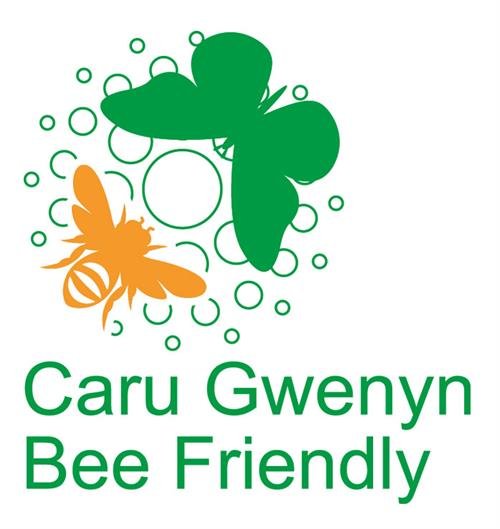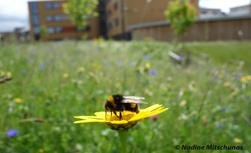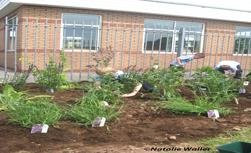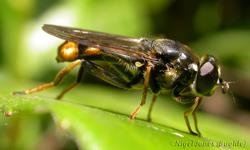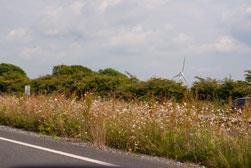Other Pollinator Work
UK Pollinator Monitoring Scheme
UK Pollinator Monitoring Scheme (PoMS) has been established two new large-scale surveys. To find out how you can take part and help us track changes in pollinator numbers please visit: https://www.ceh.ac.uk/our-science/projects/pollina...
PoMS is the only scheme in the world generating systematic data on the abundance of bees, hoverflies and other flower-visiting insects at a national scale (currently across Wales, England, and Scotland). Together with long-term occurrence records collated by the Bees, Wasps and Ants Recording Society and Hoverfly Recording Scheme, these data will form an invaluable resource from which to measure trends in pollinator populations and target our conservation efforts.
Biophilic Wales
Biophilic Wales was a three-year, £1 million project, funded by the Enabling Natural Resources and Wellbeing in Wales Grant Scheme (ENRaW). It aims to increase the wellbeing of people, wildlife and the environment, throughout Wales, using three interconnected work packages (Inspiring Spaces, Grasslands for Life and Plants for People). It will create volunteer groups that work throughout all aspects of the project and use innovative public engagement, including art and VR, to connect people to their natural heritage. It will improve green infrastructure in the places where people can benefit from it the most.
For more information, please visit: https://botanicgarden.wales/science/biophilic-wale...
Magnificent Meadows
Magnificent Meadows is a project to save Wales’ vanishing wildflower meadows. Wales has lost 97% of its wildflower meadows since the 1930s but this new project led by Plantlife, will see, charities and communities across Wales joining forces to transform the fortunes of our vanishing meadows.
This project is funded by the Enabling Natural Resources and Well-being Grant funded through the Welsh Government Rural Communities – Rural Development Programme 2014-2020. For more information, please visit: https://www.plantlife.org.uk/wales/about-plantlife...
Nature Isn’t Neat
Nature Isn’t Neat was funded through the Welsh Government Rural Communities fund under the LEADER measure of the Rural Development Programme 2014 – 2020. The project focused on Monmouth Town until June 2020. It has been led by Monmouth Town Council in partnership with Bees for Development and Transition Monmouth.
The project aims to raise awareness and engage with the people of Monmouth Town about the need to help all pollinators, why they are important and what can be done to help them.
Resources produced include:
A training manual and explanatory leaflet for crews who carry out cutting and mowing.
Pollinators’ guide to seasonal plants Part 1 and Part 2
A Guide to Monmouth Town’s Pollinator Projects



